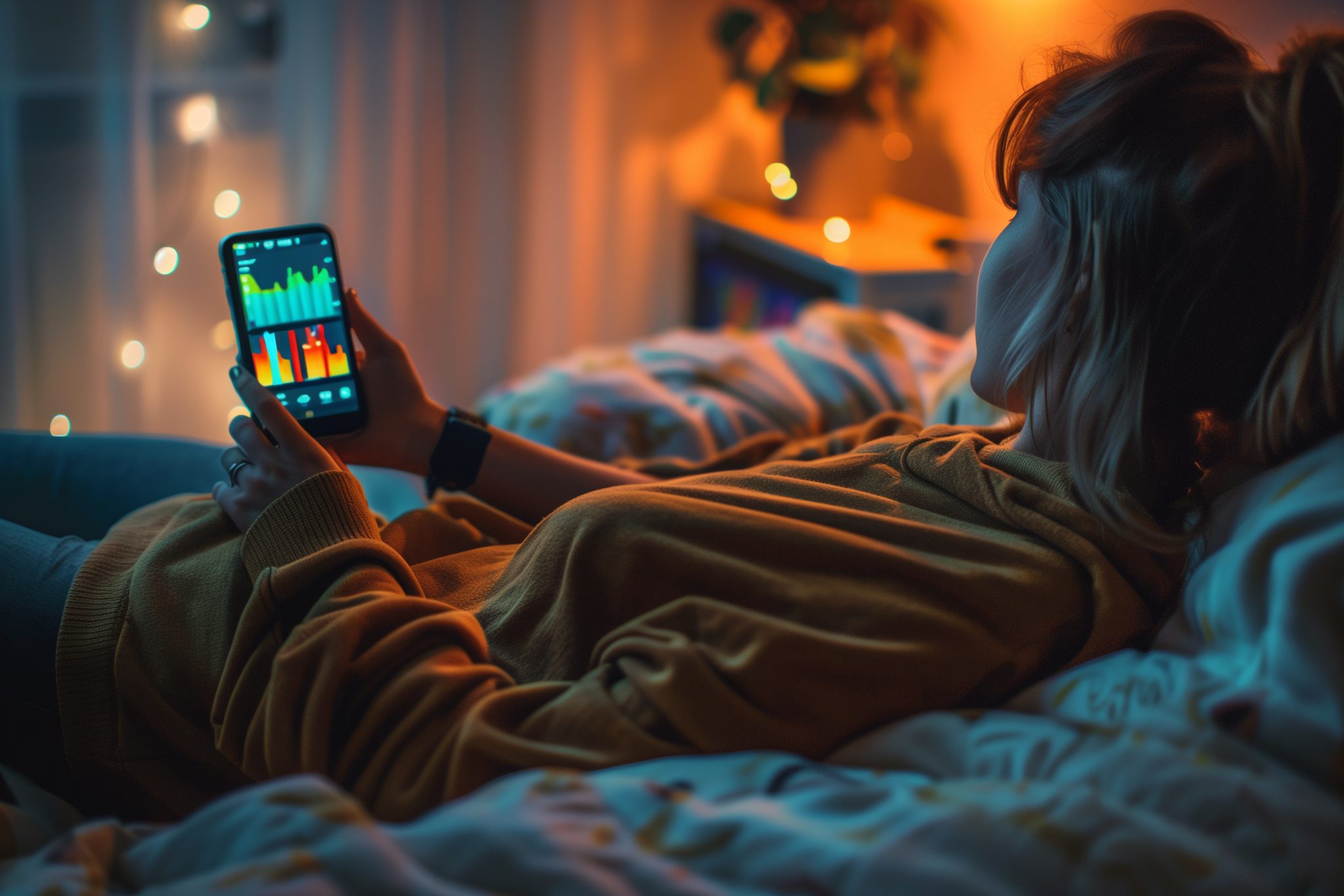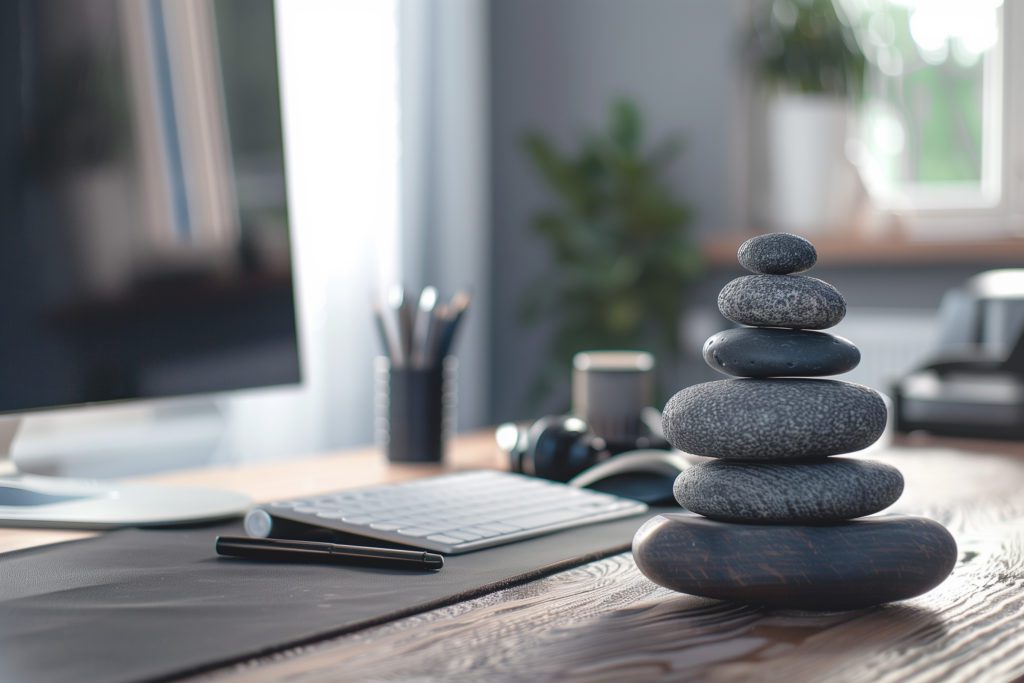
What Is Orthosomnia and How Is It Affecting Our Sleep Health?
Orthosomnia refers to an unhealthy quest for the perfect sleep using sleep-tracking data and devices. Orthosomnia can make sleep worse.

Do you use a wearable device or app to keep track of your sleep? Do you often feel panicked if you don’t hit your sleep goals? Are you focused way too much on sleep — even at the expense of other things in your life? If your obsession with sleep is affecting your life, it could indicate that you suffer from orthosomnia.
Orthosomnia comes from the Greek word ortho, which means “correct” and ”somnia,” meaning sleep. This term refers to an unhealthy obsession with getting the perfect sleep. A person with orthosomnia may be extremely preoccupied with sleep tracker data. This obsession may actually cause them to have difficulty sleeping.
Orthosomnia is not a formal medical diagnosis yet. It’s a new term that was coined by sleep researchers from Northwestern University School of Medicine and Rush University Medical School in 2017. It’s based on case studies of participants obsessed with sleep-tracking data. The research was subsequently published in the Journal of Clinical Sleep Medicine and indicated that sleep tracking can sometimes go too far.
An Unhealthy Obsession With Sleep Data
The use of wearable technology and apps to measure sleep is on the rise. One in three Americans have used some type of electronic sleep tracker. Sleep tracking apps and wearable devices are great for monitoring your sleep habits and making you aware of how much or how little sleep you are getting. They can help you establish a good sleep routine and that is a good thing — better sleep has been linked to improved emotional health, healthy cognition, and improved immune system functioning. However, like all good things, it’s possible to take sleep monitoring too far.
Some people become obsessed with their sleep data. They have intense worries about their sleep goals and use sleep-tracking devices and apps to intently monitor these goals. This gives rise to orthosomnia, a relentless quest for the ideal sleep.
Signs of Orthosomnia
People with orthosomnia are incredibly concerned with their sleep data. The signs of this condition include:
- Checking sleep data first thing in the morning or even in the middle of the night
- Reviewing sleep data numerous times a day
- An intense need to achieve the “perfect” sleep
- Feeling anxious when looking at sleep-tracking data
- Being unable to sleep if you can’t track sleep data
- Waking up feeling irritable, fatigued, or anxious
- Being distracted at work or school because of sleep data
- Intense worry about sleep that interferes with daily functioning
- Making drastic changes to one’s daily routine based on sleep data
How Orthosomnia Makes Sleep Worse
If a person becomes obsessed with their sleep tracking data, it can make them extremely anxious about the amount of sleep they are getting. This can cause them to actually have sleep problems — even if they didn’t have any before. That is because anxiety and stress can make it very hard to fall and stay asleep. The more you try to control your sleep, the harder it gets to sleep. That’s because stress releases the hormone cortisol, which has a powerful effect on your sleep. Cortisol increases your heart rate and blood pressure, both of which serve to keep you awake.
What to Do About Orthosomnia
For most people, sleep trackers, and sleep apps can be very helpful. They can help you pay attention to sleep and change behaviors that might be affecting it. However, some people can become obsessed with sleep data. This usually indicates a deeper issue that needs to be addressed. Here are some ways to do that.
Ask For a Referral to a Sleep Specialist
If you are obsessed with sleep tracker data because you are experiencing daytime sleepiness, extreme fatigue, irritability, difficulty concentrating, or other sleep-related symptoms, then you should ask your doctor for a referral to a sleep specialist. Sleep tracking data can’t replace the expertise that comes from a sleep specialist or robust medical data from an actual sleep study or polysomnogram.
Take Off the Sleep Tracker
Try taking off your sleep tracker for a while and monitor your sleep using a pen and paper. Track things like:
- Bedtime and wake-up times
- Daily habits that could affect your sleep
- Your mood upon waking up
You don’t need to give up your wearable or app forever. But, taking a break should help lessen your anxiety and sleep fixation. If it doesn’t then it’s time to talk to a therapist or your doctor.
Rely on Your Body To Tell You How Well You’ve Slept
Rather than relying on sleep tracking data to tell you how restful your sleep was, learn to tap into your body’s cues that indicate restful sleep. Allow yourself to trust in your body to tell you how you’ve slept. Every morning, journal whether or not you wake up feeling refreshed and energized. If you are feeling well-rested, you are probably getting enough sleep.
Remember That Sleep Tracking Data Is Not Perfect
There are many tools and devices that you can use to monitor your sleep. These sleep trackers are helpful when it comes to getting a good night’s sleep. They can be part of a healthy sleep routine. Their use becomes a problem when people are looking for perfection in the data produced. It’s important to remember that these wearables and sleep apps aren’t perfect. Even apps and trackers that use noise, biometric data, and movement patterns to give you information about your sleep aren’t completely accurate. They all have a margin of error when it comes to the data that they produce.
Talk With a Licensed Therapist
An obsession with your sleep tracker could be a sign of a deeper issue, like perfectionism or obsessive-compulsive disorder (OCD). If you are struggling with orthosomnia, it can be a good idea to see a licensed therapist or psychologist to figure out if something else is behind your obsession with sleep-tracking data.

Written by
Emily Mendez
Emily Mendez is a former therapist and mental health author. She is one of the leading voices in mental health. Emily's writing has appeared in eCounseling, SonderMind, and more. Emily is frequently interviewed by Healthline, Fatherly, INSIDER, Family Circle, and other national media for her advice and expert opinion on the latest mental health topics.
Download Pillow
Get help
Press & News
Legal
Connect
X (Twitter)
Company
Copyright © Neybox Digital Ltd.



